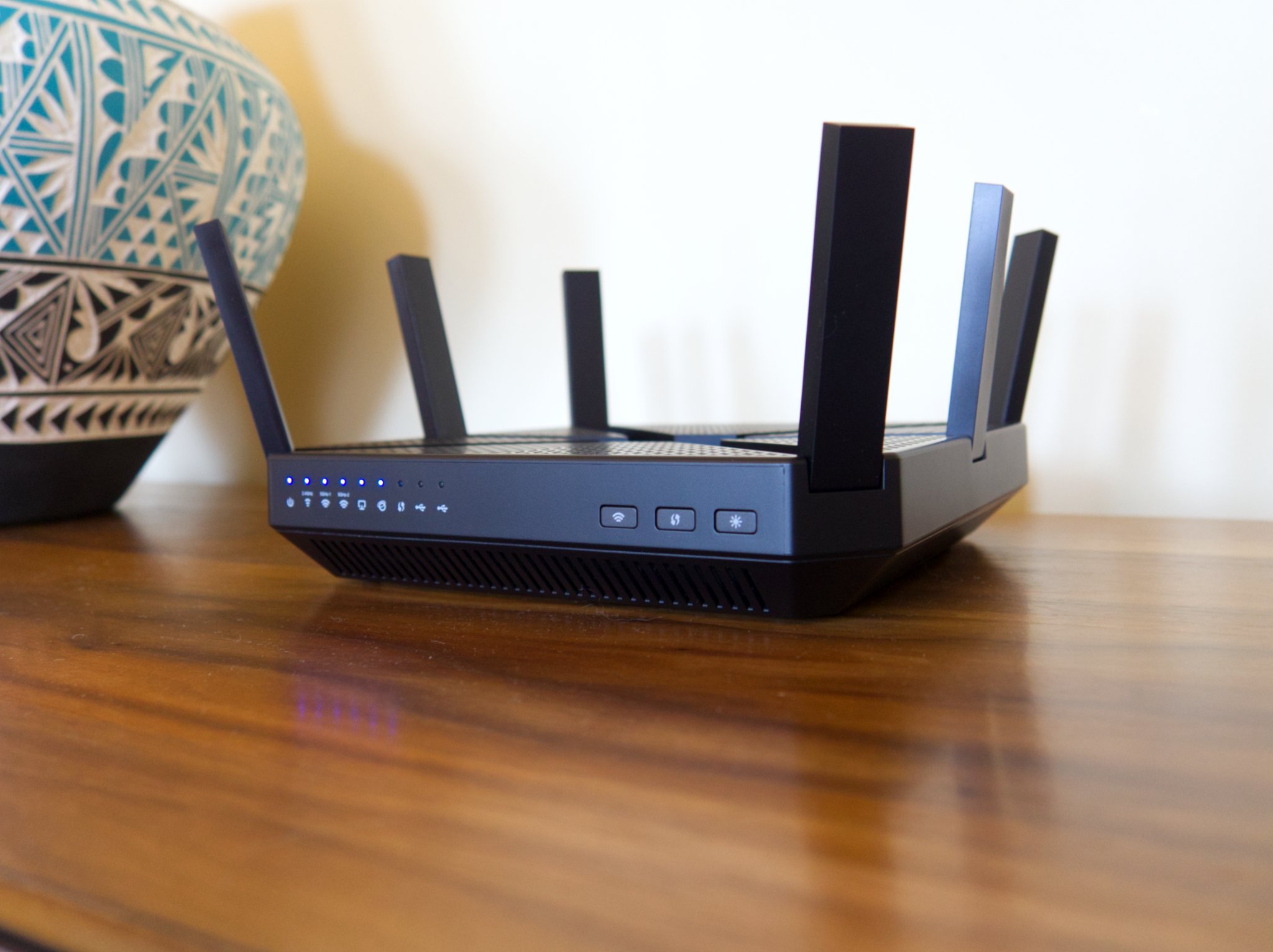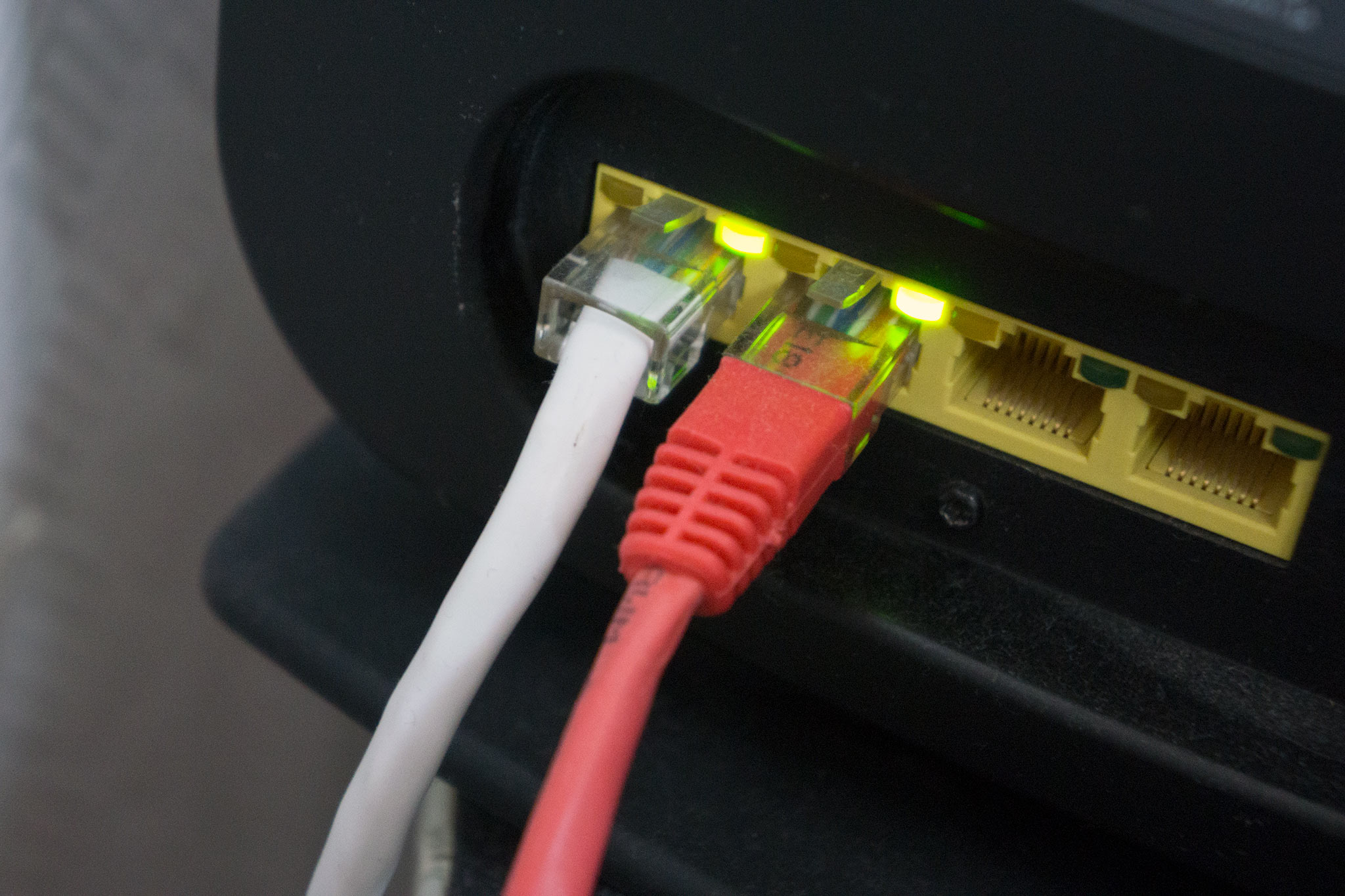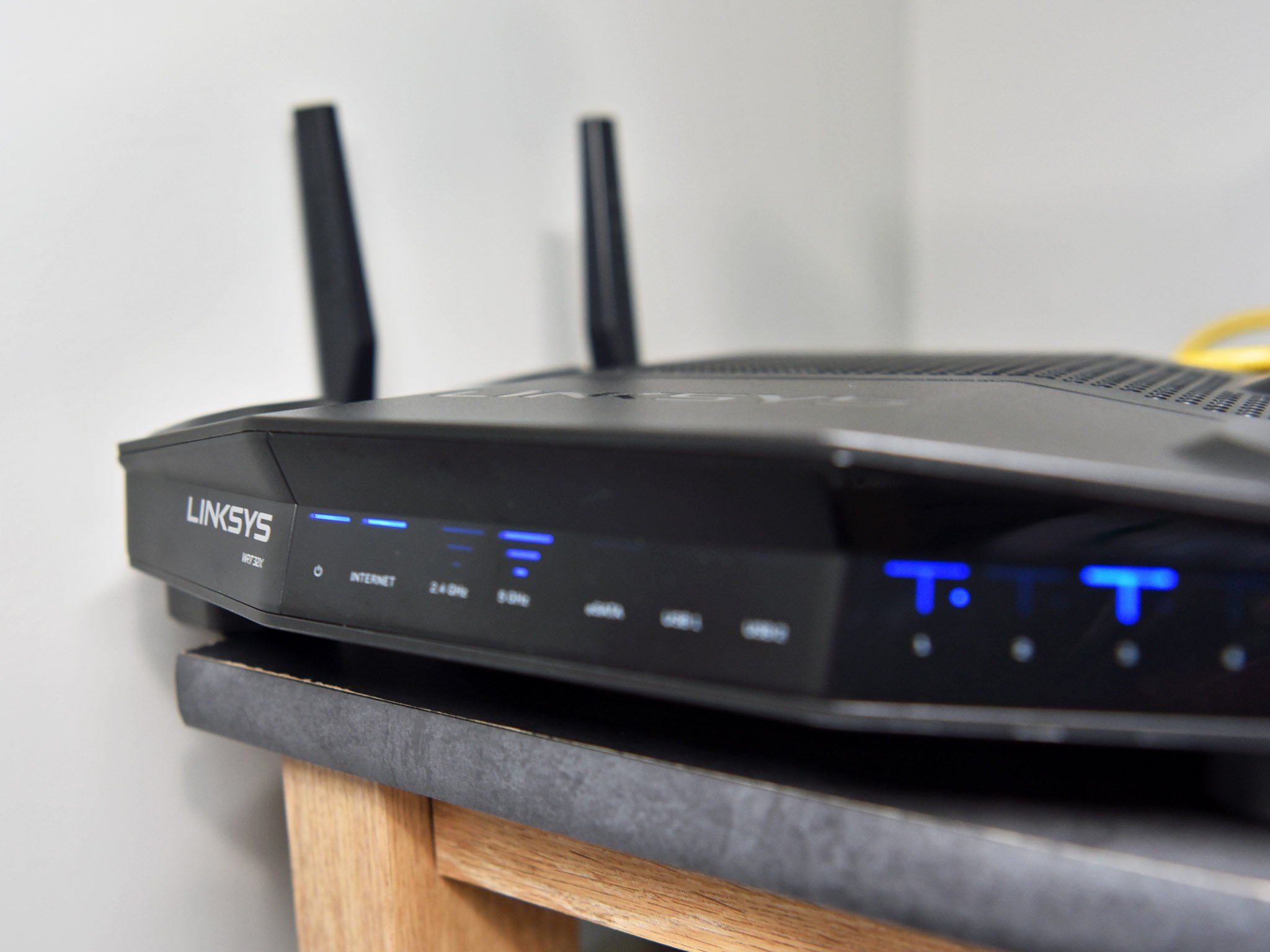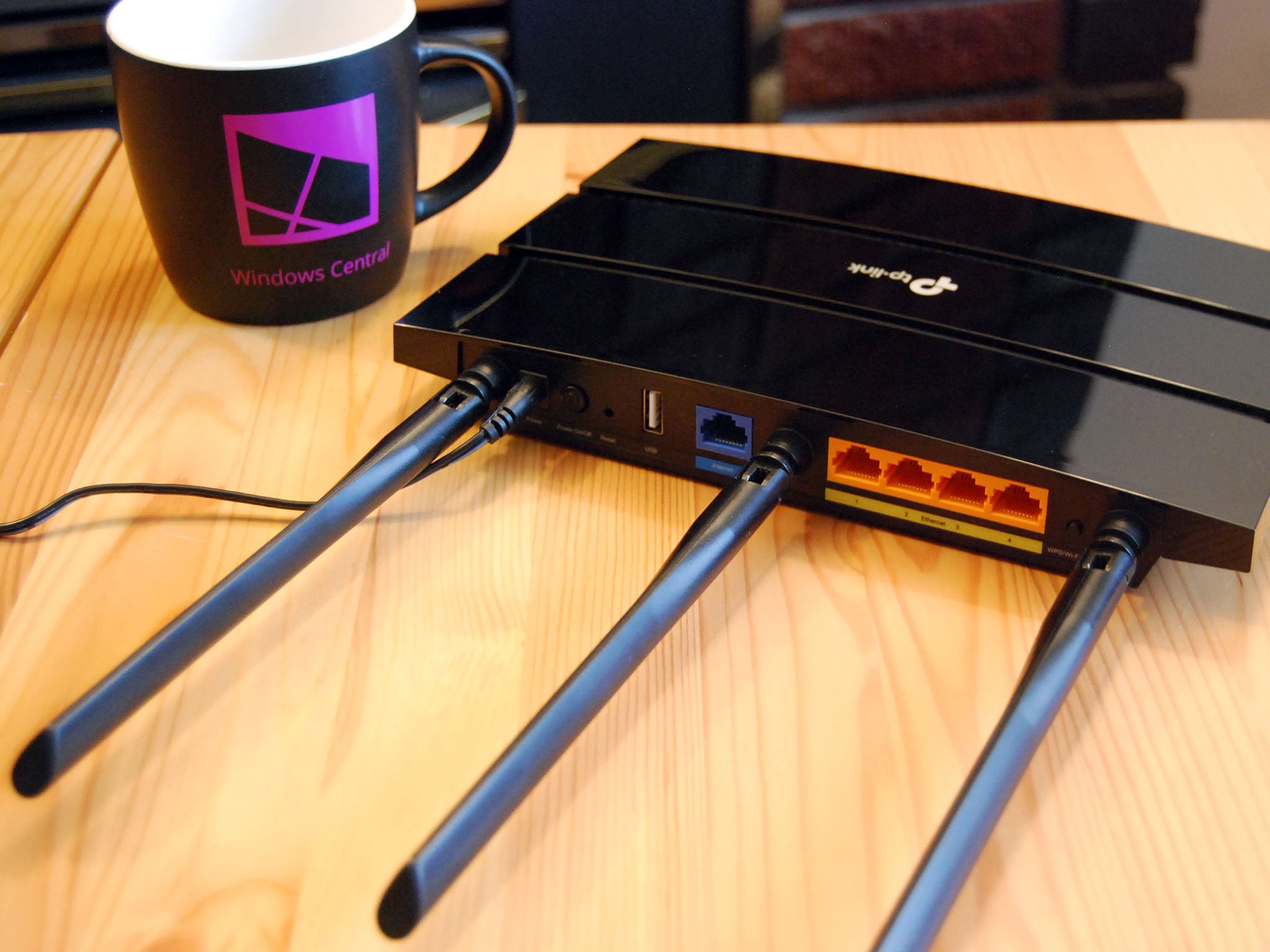Best answer: Right now, the best router is a Wi-Fi 5 or Wi-Fi 6 router that is easy to set up and has good range for spreading fast internet out to your devices.
Why shop for a specific router?
Because of its essential role in a connected home, choosing a proper router is becoming more critical than ever before. Most internet service providers (ISP) will supply you with a wireless router — often coupled with a cable or DSL modem — and many people assume that it's as good as it gets. It connects your devices to the internet, so why worry?
In some cases, the router provided by your ISP will indeed serve you well, and you'll be satisfied with what you have, especially if it's loaned to you as part of the subscription package. For years I lived in a small, open place that easily picked up my few devices with the single antenna, and when I needed to hit top speed, I used an Ethernet cable. If, however, you have to rent a router from your ISP, or if it's outdated compared to the devices you're using in your home, you can likely take advantage of an upgrade.
Now that many people are forced to work from home, are self-isolated, or quarantined due to the coronavirus pandemic, a shoddy router is going to become even more apparent.
What are the different types of Wi-Fi standards?
Wi-Fi is a global standard, and to ensure that devices can connect without issue, there are specifications that it must adhere to. That standard is known as 802.11, and the letters a, b, g, n, ac, and the new ax that follow it designate the version. The versions are compatible with each other, but connecting to an earlier version means your device will be capped at the slower speed.
With the release of 802.11ax, a new naming method has come into effect to help differentiate the older versions of Wi-Fi. They are now designated as follows:
- 802.11b is now Wi-Fi 1
- 802.11a is now Wi-Fi 2
- 802.11g is now Wi-Fi 3
- 802.11n is now Wi-Fi 4
- 802.11ac is now Wi-Fi 5
- 802.11ax is now Wi-Fi 6
What exactly is Wi-Fi 6?
Wi-Fi has not stopped evolving, and AX is currently the latest version, though N- and AC-version devices and routers are still relevant and quite common. However, because of the progression, buying a new 802.11n router in most cases doesn't make as much sense as buying at least an AC, or Wi-Fi 5, router, especially because of how much they've dropped in price. New devices, like the TP-Link Archer GX90 are going the way of AX (Wi-Fi 6), and it's smart to look to the future.
Wi-Fi 6 has some major benefits over the older Wi-Fi 5 (802.11ac). The Wi-Fi Alliance (the standards body that oversees Wi-Fi technology) lists these four key benefits of Wi-Fi 6:
- Faster overall transfer speeds to and from devices
- More capacity for connected devices
- Better performance with many connected devices
- Less device battery drain when connected
Wi-Fi 6 is much better cut out for handling traffic from large crowds, and it can handle a much higher theoretical speed up to about 9.6Gbps (about three times the current theoretical limit of Wi-Fi 5). As people move to high-resolution streaming, intensive gaming, and many more connected devices, Wi-Fi 6 will truly begin to show its benefits.
If you're interested in future-proofing your Wi-Fi network and already have some Wi-Fi 6 devices that can connect to a shiny new router, be sure to check out our roundup of the best Wi-Fi 6 routers available right now.
What are bands, and what's the difference between dual-band and tri-band?
Wireless communication happens over radios (also commonly called bands), which can be seen as roads that your data travel along. While routers up to and including 802.11g operated solely on the 2.4GHz band, support for 5GHz bands was added in 802.11n and carried over to 802.11ac and 802.11ax. Why? The 2.4GHz band was becoming crowded, leading to a rush-hour scenario where traffic was getting jammed up.
Devices that can use only the 2.4GHz radio are called single-band devices, while dual-band devices can use the 2.4GHz and 5GHz radios. Whereas the lower-frequency radio has a lower speed limit and is more narrow, the 5GHz band is much wider and has a much higher speed limit.
There are drawbacks to the 5GHz band. Higher frequency means the signal loses more of its strength as it deals with walls, furniture, and other obstacles. However, modern routers have something called beamforming that will send a signal in the direction of a device, rather than just spraying a signal in a sphere around it. Still, the increased speed and wider road mean it's perfect for streaming high-def video and gaming.
Typically, your router will be dual-band or tri-band. Dual-band routers have both a 2.4GHz band and a 5GHz band. Tri-band routers add a second 5GHz band on top of that. More than one band frees up congestion from your devices and prioritizes them based on the band's distance from them.
Does internet speed matter?
Within each Wi-Fi standard are further classifications that determine the actual performance you'll get. You might see a router advertised as AC1200 or AX6000, but that doesn't mean you're getting a top speed of 1,200Mbps or 6,000Mbps. This number is a combination of speeds from both bands. For example, an AC1200 router is going to have a 2.4GHz band with a top speed of 300Mbps and a 5GHz band with a top speed of 867Mbps (rounded up to the nearest hundred).
Even these speeds are theoretical, and in real-world testing, you likely won't get anywhere near that number. Likewise, if you see a Wi-Fi 5 router labeled with something like AC5000, it's not magically hitting 5,000Mbps. Instead, you're getting a single 600Mbps 2.4GHz band and two 2,166Mbps 5GHz bands. In the case of an AX6000 Wi-Fi 6 router, which can triple speeds on the radios, you're looking at theoretical speeds up to 1.2Gbps on the 2.4GHz radio and 4.8Gbps on the 5GHz radio.
So, stepping out and buying the biggest, baddest, most expensive router might be tempting, but paying for something you don't need will be more of a letdown. For example, if you're paying for a 50Mbps internet plan from your ISP and you live in a one-bedroom apartment, it doesn't make much sense to buy an AC5000 router with eight antennas. Your internet can only be as fast as the slowest point in the connection, which in this case, is likely what's provided by your ISP. A lot of the options we've collected in our best Wi-Fi router roundup will appeal to the average user who needs hardware to fit their ISP plan.
Should you determine how much area you need to cover?
Living in a large home can cause problems when it comes to serving Wi-Fi to all of your devices, especially when using the 5GHz band. For smaller apartments or homes, a single router with a strong set of antennas will no doubt get the job done, and it doesn't hurt to test things out before buying something too expensive. Reading reviews is a great way to get an idea of how much range a router has.
If you know you're going to have an issue covering a large space and don't want to buy a single, large router, you can always take a look at mesh Wi-Fi kits. These systems work in unison to deliver Wi-Fi to a large area, often covering thousands of square feet of indoor space. They're built to be as easy as possible to set up, and they're an increasingly popular choice even for smaller areas. Interested? We've rounded up the best mesh Wi-Fi router systems to help you buy what's right for your space.
How many devices will be connected to your router?
If you're living alone and have but a few devices that would be connected at once — a console along with a phone, or a laptop along with a TV streaming device — you shouldn't have to worry about putting too much strain on your router. While you shouldn't ever hit a point where you can no longer connect devices (unless you're supplying internet for the entire block), the more connections you have at once will slow speeds.
If you have a router with a 2.4GHz band that can hit a theoretical max of 300Mbps and have 10 devices connected at once, each of those devices would only be getting an average of about 30Mbps. For anyone in a crowded home with multiple devices connected at once, a high-end, dual-band router is your best bet. If your family can't stop streaming Netflix, a tri-band router with two 5GHz bands is definitely something to consider.
On that note, pay attention to how many Ethernet ports a router has. Have lots of devices for which you want to provide a wired connection? Start counting. Likewise, check for USB ports if you're looking to add an external drive or other device to your home network.
Do you need MU-MIMO?
To complicate things even further, most new routers have something called multi-user, multiple-input, multiple-output (MU-MIMO) tech baked right in. Whereas more traditional single-user, multiple-input, multiple-output (SU-MIMO) tech delivers data to one device at a time on a rotating basis, MU-MIMO allows for simultaneous data delivery.
SU-MIMO is fine for most purposes, and the rotating delivery happens so fast you usually won't notice. If, however, someone in the home is streaming video and you're trying to game online, MU-MIMO can come in handy by offering uninterrupted data flows to both devices. If you're mostly using older devices, MU-MIMO won't be as important, but if you're always updating hardware, you'll no doubt be able to take full advantage of the feature.
How important are security features?
If you need to be in full control of everything that goes through your router, go for one with advanced firmware that includes a decent firewall and offers any additional features you may require, or supports the installation of third-party advanced firmware like DD-WRT that can offer those features.
If you are concerned about your children being exposed to inappropriate information on the internet, choosing a router with built-in parental controls can be useful. Some routers even let you allow and restrict internet access for your children based on time slots and offer guest access for your visitors so that you won't need to provide them with your primary Wi-Fi password.
How to choose the best Wi-Fi router for you
Now that I've thrown all these terms and acronyms at you, I'll do a bit of a recap. An AX (Wi-Fi 6) router is your best bet for a future-proof connection, though an AC (Wi-Fi 5) router can be had for dirt cheap and is likely suitable if you aren't paying for a high-speed connection from your ISP. If you are paying for a high-speed connection, ensure you're investing in at least an AX (Wi-Fi 6) router that can handle it. You want to extend that speed to all your devices, whether with a dual-band or even tri-band router.
Consider how big of a space you need to cover, and plan accordingly. Some of the high-end routers can tackle a pretty impressive chunk of real estate, but you might need to invest in a mesh Wi-Fi system to hit that bottom corner of the basement.
If you are in a big space, you might have a lot of people trying to connect their devices simultaneously. If this is the case, investing in a router with two 5GHz bands isn't a bad idea, and going for something with a high speed might come in handy if you decide to upgrade your ISP internet package in the future.
Finally, choose a router with the proper customization options. If you want to tweak a lot of settings, ensure it makes them available to you. If you'd rather just plug it in and not worry about it, you'll probably have an easier time when shopping.
Superb router
TP-Link Archer A7 Wi-Fi router
A solid Wi-Fi 5 router with all the features you need
The Archer A7 is an incredibly affordable Wi-Fi 5 router that will perform well for most people. Its features and throughput are unparalleled for the price.














0 comments:
Post a Comment